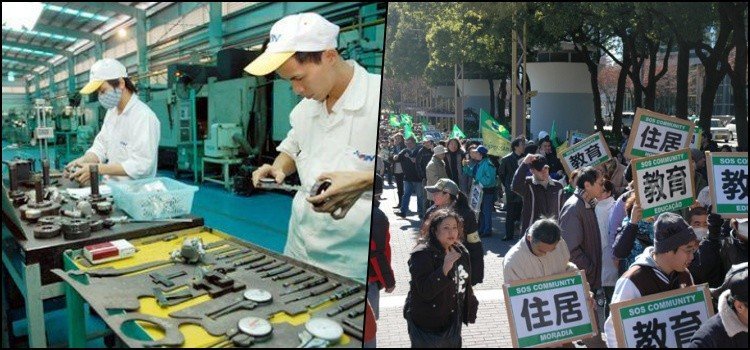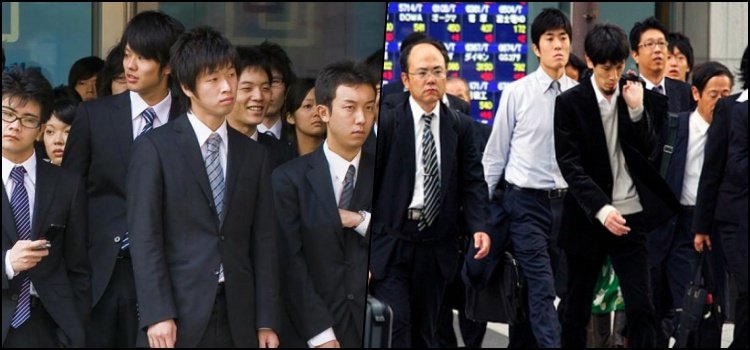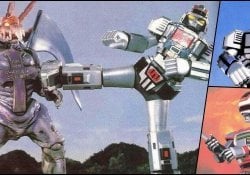Hey you. Yes, you there. Yes, you are reading this article. Are you thinking about going to Japan to work in factories? Why not? After all, it's the easiest way for you to go to Japan. If you go nikkei (Japanese descent), you are entitled to a visa to work in factories in Japan. if not nikkei, then marry a nikkei. So, you get the spouse visa and the contractors will hire you and your spouse.
Before reaching any disagreement, I want to make it clear that this text was written in a generalized way, but read to the end to understand that we don't think that way! There are different realities and the problem is not in the factories!
But everything has a price, friend. There in Japan, there is no CLT. There is no Work Card. There, you are employed by contract. And they hire you to work 10 hours a day, minimum.
Yes, at least 10 hours. Even though the workload is 8, some contracts kind of force you to work overtime and shifts of 10, 12 or even 15 hours. And you can even work on Saturday.
Think about this: The day has 24 hours, right? Of those 24 hours, you will spend half the day working. Not to mention the time it takes you to get to and from work. So, you will come home tired. VERY tired out.
Índice de Conteúdo
The stress of working in factories
Some time ago, I worked in telemarketing. I would stay all day listening to a client's tantrum and when I got home, I didn't want to talk to anyone, I didn't want to talk, I didn't want anything. I just wanted to lie down and sleep.
It's the normal feeling of those who arrive tired/stressed from work. That's because I didn't stay 10 hours answering and listening to customer curses.
Now, consider this: imagine staying 10 hours or more doing a repetitive job and still, in the case of factories, manual and arriving at the end of the shift, the big boss arrives and shouts:
“There’s zangyou today, guys!”
Is that you TEM what to do zangyou (extra hour). Not because it is a written rule, but because you will feel obliged to do it. zangyou. Otherwise, you won't have any money.
The good side is that it won't be 10 uninterrupted hours as there is a lunch hour. There are even breaks of 5 to 10 minutes. But, you'll later have to make up those gaps at the end of the turn, depending on how many gaps you've taken.
Paid vacations? Guarantee fund? Retirement? Salary allowance? Health plan? Despite its existence, some complain about how it works, others even stop paying insurance and then blame it on Japan.
The stress of working in factories makes many people dislike Japan. So if you're not a person with presence of mind, you'll end up hating the country. And just like that, your life sucks.
Imagine living in a country where you don't have time for anything. Many end up feeling contempt for Japan for this. That's worse. Imagine living in a country you hate for the previous reason. This is what you want?
Is it really worth you to do this?
As mentioned earlier, one can end up hating Japan because of the stress of factories. It's not an easy job. And the stress will not only affect you. Many Brazilians who go to Japan to work for construction companies are married. The weight of the factory routine will affect your marriage.
By the way, speaking of contractors, here's another news for you: Depending on the contractor, you're going to have a hard time. There are cases of hack contractors who deceive you, promising you a thousand things before going to Japan. Arriving in the country, it will be a situation that is totally different from what you were promised before.
In the case of the video above, the citizen could not even mention the name of his contractor that got him in trouble. Do you know why? Because, if you did, the contractor could sue you.
When you get a reliable contractor, you will earn a lot working in a factory, but you will also spend a lot. As said before, you end up having to do zangyou or you won't have any money left. And even you doing zangyou every single day, you won't even see the color of that money. Especially if you have kids.
Afterwards, after a while working in the factory, you will live in automatic mode. Your routine will be just home and work. You will live a life where you will feel alienated from everything and everyone.
Therefore, I ask you: Is it worth it?
Ah, but how am I going to work in Japan then?
There is an article about jobs in Japan besides factories. In this article, it was described the possibilities for you to earn your living in Japan without having to kill yourself in the factories. for that you need two things: Speak Japanese well and know how to research.
Yes, knowing how to research because there are several opportunities that even go unnoticed by factory workers. Because? Because the people who are in this routine, over time, end up getting it into their heads that the only work that exists for Brazilians is the factories. As if there were no other ways to live in Japan.
This is a consequence of living a routine where you feel like a zombie. After a while, stress and pessimism go to your head. However, don't get carried away by fatigue. It is possible for a Brazilian to have a job that is not in a factory.
With a college degree and speaking Japanese well, you can get jobs in top-notch companies. Without a college degree and speaking Japanese well, you can get jobs in convenience stores, markets, etc. If you're smart, you can set up your own business and make a living out of it.
But, without Japanese or higher education, what you're left with most of the time are the factories. And if you're lucky and go for it, you can get part-time or 8-hour jobs without any difficulty.
The article is still halfway through, but we recommend also reading:
Are Japan's factories really that bad?
No way! The factories in Japan are great and offer working conditions that don't exist in many places around the world. The problem lies in how people choose to work or in some contractors.
Not everyone thinks factories are bad, in fact it is up to each person to know how to manage their time and work in a way that does not harm them mentally. Some lived an easy life in Brazil, but when they went to Japan they had a harder job, that's why they complain.
The big problem is that regardless of Japan or Brazil, most people do heavy, repetitive and long hours. So much so that reports say that more than 50% of the Brazilian population works 10 hours a day.
There are probably people who work without working overtime. The problem is not in the factories, but simply in the people who do not believe in their own potential to change this routine that they complain so much about or get out of their comfort zone.
If you feel injured or that you are losing something in a certain factory or contractor, it is better to look for another that offers better working conditions. In Japan there are more jobs than people, so don't waste time where you're not being happy.










